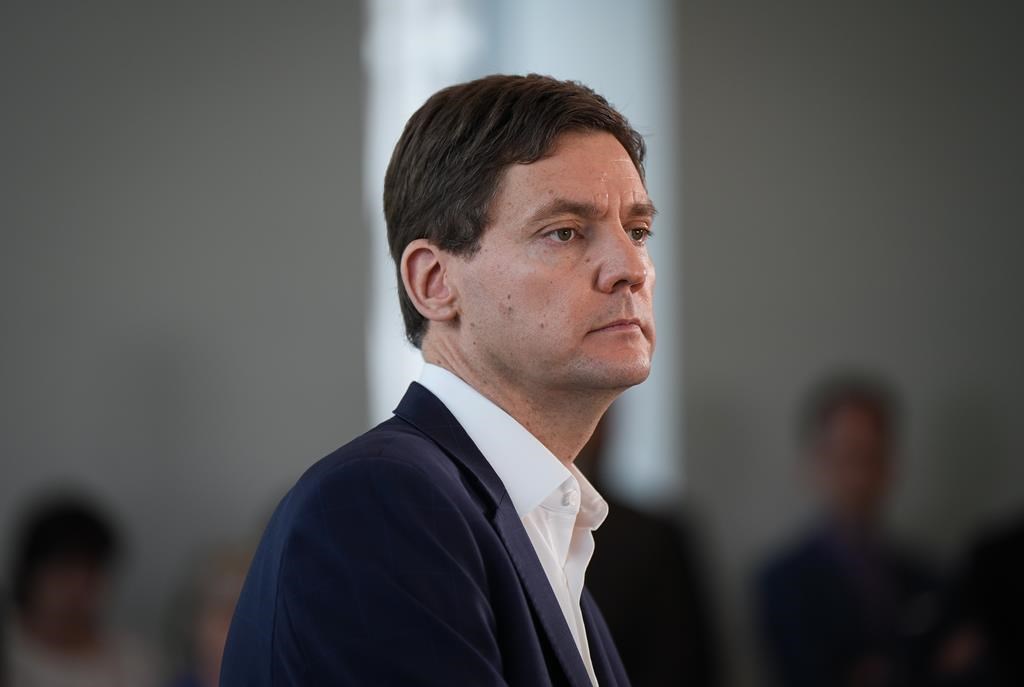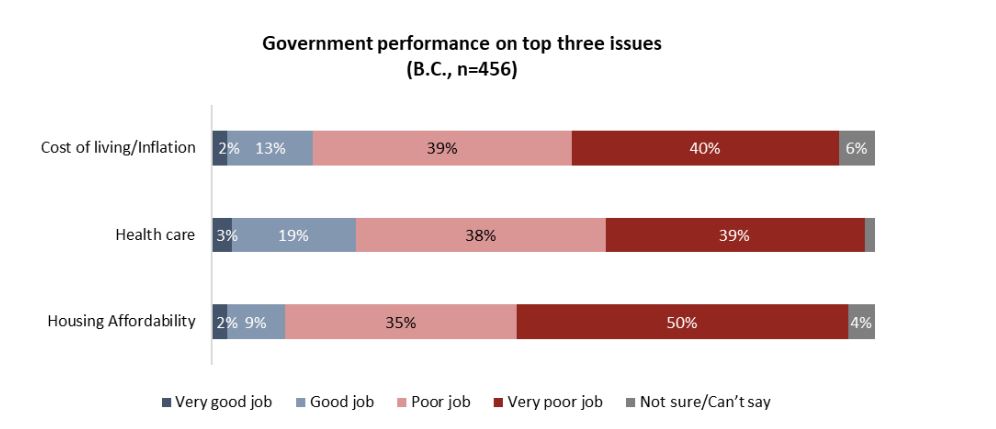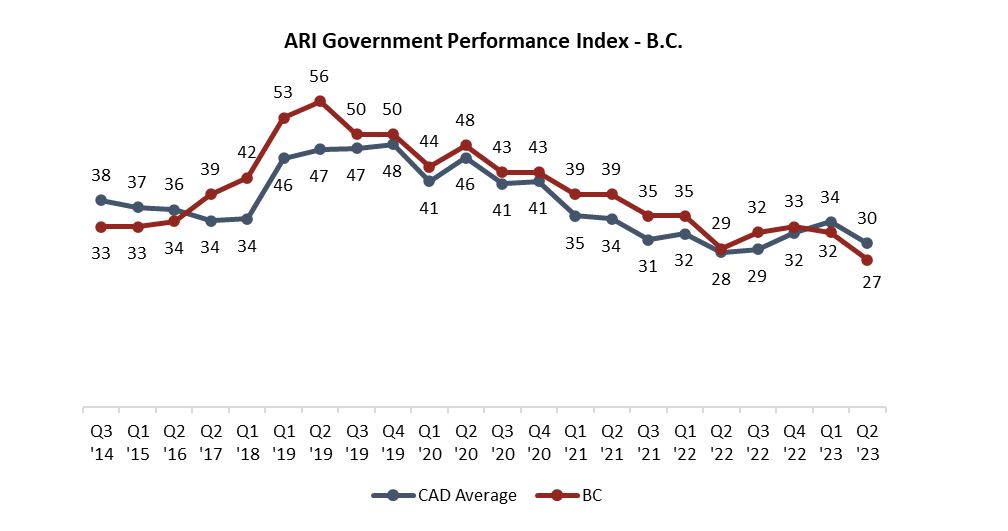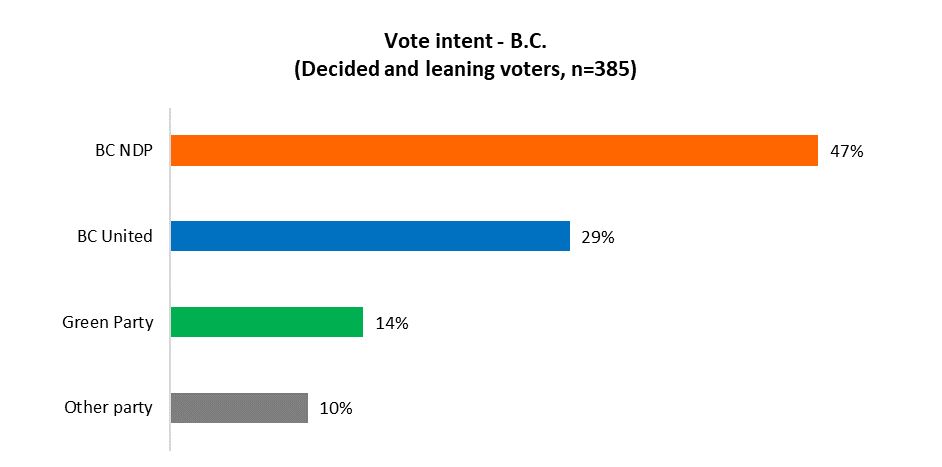British Columbians are widely dissatisfied with the BC NDP government’s handling of key issues, but the province’s official opposition doesn’t appear to be reaping the benefits, a new poll has found.

Strong majorities gave David Eby’s government a failing grade on the three top issues, according to the survey conducted by the Angus Reid Institute.
“What’s really standing out in this set of data is just how annoyed British Columbians are on those really important key issues,” Angus Reid Institute president Shachi Kurl said.
On the rising cost of living and inflation, 79 per cent of respondents said the government was either doing a poor or very poor job, compared to just 15 per cent who said good or very good.
On health care, 77 per cent gave a poor or very poor rating, compared to 21 per cent who said good or very good.

And on housing affordability, 85 per cent gave a poor or very poor rating, compared to just 11 per cent who said good or very good.

Get daily National news
On the pollster’s government performance index — a metric that tracks public satisfaction across 13 key issues, but is not a percentage — the NDP scored a 27.
That’s down from a high in 2019 of 56, and for the first time in recent memory below the Canadian average, which currently sits at 30.
Only Ontario and Manitoba (21) and New Brunswick (22) scored lower, according to the poll.
David Eby’s approval currently sits at about 45 per cent, Kurl said, which is fairly good for a provincial politician but far below former B.C. premier John Horgan’s approval during the COVID-19 pandemic.

Despite the poor performance marks from British Columbians, the governing party does not appear to be losing major ground to the opposition BC United.
The poll found 47 per cent of respondents would still vote NDP if an election were held today, compared to 29 per cent for BC United, 14 per cent for the BC Greens and 10 per cent for an other party.
The poll was conducted prior to a pair of recent BC byelections in which BC United performed poorly, coming in fourth place on Vancouver Island and scoring just 13.7 per cent of the vote in East Vancouver.
“You can be mad at a government you elected, and still see no better alternative, and in terms of vote intention, it’s true: British Columbians are not very happy with what they’re seeing in terms of the way the Eby government has been performing lately, but they don’t see a better alternative,” Kurl said.
BC United underwent a party rebrand from the BC Liberals earlier this spring and elected new leader Kevin Falcon last year.

Kurl said its clear the official opposition has work to do to connect with B.C. voters.
“What we’re seeing, despite a name change, despite a change in leadership is that the opposition party is continuing to fail to pick up any traction against the BC NDP,” she said.
“Is it an enthusiasm gap, is it a lack of passion or a perceived lack of authenticity? Whatever it is, British Columbians are not warming up to either the leader or the caucus as an alternative to the government, that even now they’re mad at but don’t necessarily want to switch away from.”
The poll was conducted online between May 30 and June 3 among a randomized sample of 3,885 Canadian adults who are members of Angus Reid Forum.
For comparison purposes only, a random probability sample of this size would carry a margin of error of puls-or-minus one per cent 19 times out of 20.
- Read the transcript of Trump’s response to U.S. Supreme Court tariff ruling
- Real Canadian Superstore fined for ‘misleading’ Product of Canada displays
- Danielle Smith promises Alberta referendum over immigration, Constitution changes
- ‘No reason to continue discussing’: Ontario mayor wants Andrew’s name dropped











Comments
Want to discuss? Please read our Commenting Policy first.